#EXCLUSIVITY
Explore tagged Tumblr posts
Text

IYKYK
#taste#exclusivity#beauty#tranquility#connections#just us#be in the moment#peaceful#get lost together#couple#live life#feel it#gazing into eyes
89 notes
·
View notes
Text

120 notes
·
View notes
Text

The street style marks the difference and exclusivity
62 notes
·
View notes
Text

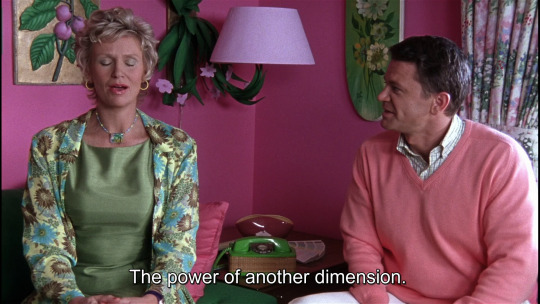

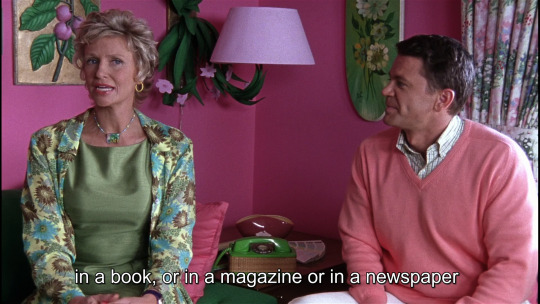
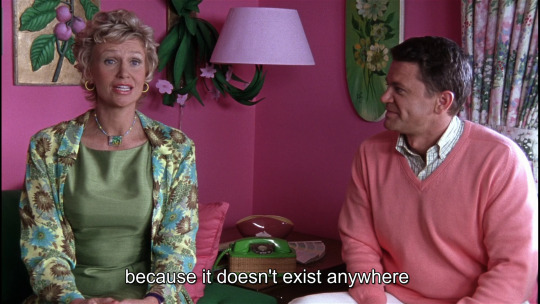
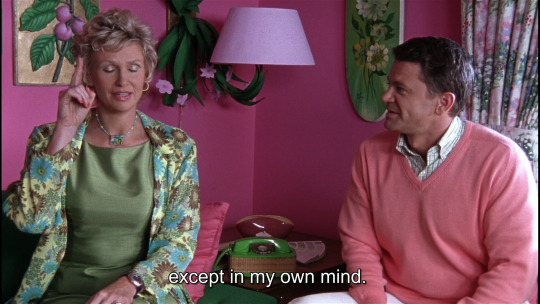
A mighty wind, 2003
#comedy#music#a mighty wind#christopher guest#eugene levy#john michael higgins#jane lynch#exclusivity
57 notes
·
View notes
Text
For my Patreon, you have access to the first 2 pages of the next chapter 👀
18 notes
·
View notes
Text


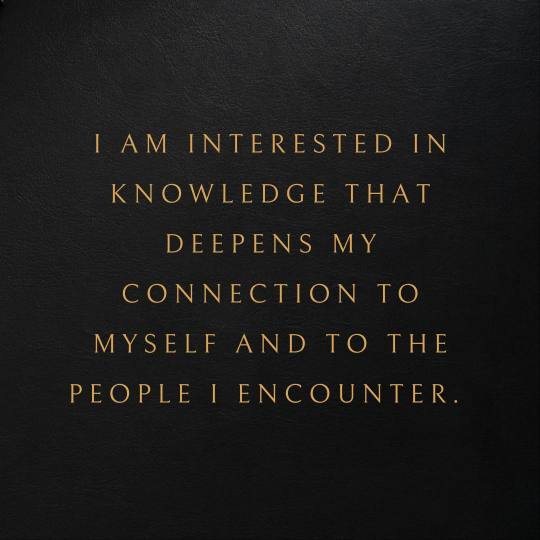
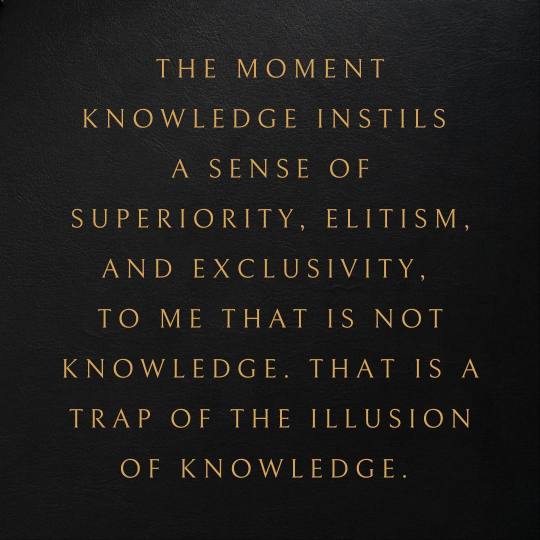
the darkest side of academia that the dark academia genre exhibits to me is the ivory tower. the superiority complex. the snobbery. deluding yourself that you are superior to other human beings because of your accumulated information, information used as justification to behave with contempt.
i’ve recently read the brilliant The Secret History by Donna Tartt, a staple book of the dark academia genre, and what marked me was the contempt with which the exceptionally intelligent group of main characters treated everything: from the people around them to technological advancements and innovations in any field which was not theirs (namely, the classics).
i’ve been contemplating that, personally, i am not interested in knowledge that cuts me off from the world. i am interested in knowledge that enhances every facet of my experience of the world. i am interested in knowledge that deepens my connection to myself and to the people i encounter. the moment knowledge instils a sense of superiority, elitism, and exclusivity, to me that is not knowledge. that is a trap of the illusion of knowledge.
the trap will come, and i've seen it in me plenty: at our core, we are meaning-making machines and our identity is built on separation, comparison and rejection. the mind will feed into the making of identity any information it gathers. but ultimately we are not slaves to it. when the allure of superiority peeks its head, it can be deconstructed – not from a place of fear or shame, but from a place of understanding and gentleness. that is knowledge to me. what excludes that, to me, is accumulation of information.
i love reading dark academia books because they mirror back to me my ingrained patterns (such as fascination with exclusivity; exclusive teachings, teachers such as Julian Morrow - writing an article on him at the moment!) & the many traps paving the / my way.
#the secret history#dark academia#ivory tower#academia#superiority complex#knowledge#connection#openness#love#julian morrow#exclusivity#donna tartt
47 notes
·
View notes
Text
i value exclusivity to much it makes it hard to form any type of relationship without getting exceedingly jealous
#relatable#relationship#hardest difficulty#exclusivity#exclusive#love#girlblogging#sad thoughts#sadgirl#sad quotes#why am i like this#mitski#poetry#sad poetry#poem#3am thoughts#2am thoughts#4am thoughts#1 am thoughts#5am thoughts
3 notes
·
View notes
Text
More peace, more exclusivity.
#peace#exclusivity#simplicity#minimalism#intentionalliving#selfcare#personalgrowth#wellbeing#balance#harmony#serenity#contentment#satisfaction
13 notes
·
View notes
Text

The Rising Cost of Luxury Menswear Decoding Ralph Lauren Purple Label’s Rising Costs
I want to dive into something that's been on my mind and likely yours too: the rising cost of luxury menswear. It's no secret that dressing well has always come at a price, but lately, that price seems to be climbing higher than ever. And who better to use as a prime example than Ralph Lauren's Purple Label?
Ralph Lauren has long been synonymous with American luxury and sophistication. The Purple Label, in particular, stands as the pinnacle of the brand's craftsmanship and elegance. But have you noticed how the price tags on these garments have been creeping up year after year? Let's explore why this is happening.
Craftsmanship and Quality First and foremost, the craftsmanship and quality of Ralph Lauren Purple Label are second to none. Each piece is meticulously crafted, often by hand, using the finest materials available. From the softest Italian cashmere to the most luxurious wool, these fabrics don't come cheap. And let's not forget the attention to detail – hand-stitched seams, bespoke tailoring, and unique designs all contribute to the final cost. Quality like this demands a premium, and as the demand for these high-quality materials increases, so do the prices.
Inflation and Economic Factors Next up, let's talk about the broader economic factors at play. Inflation is a key player in the rising costs of luxury goods. The cost of raw materials, labor, and shipping has been steadily increasing over the years. As these costs rise, so does the final price of the garments. Additionally, global economic fluctuations, such as changes in currency exchange rates and trade tariffs, can impact the cost of producing and importing luxury items.
Exclusivity and Brand Positioning Luxury brands like Ralph Lauren also rely heavily on the concept of exclusivity. By keeping their prices high, they maintain an air of exclusivity and prestige around their products. It's a strategic move – if everyone could afford Purple Label, it would lose its elite status. By raising prices, Ralph Lauren ensures that their most luxurious line remains a symbol of wealth and success.
Sustainability and Ethical Practices In recent years, there's been a significant shift towards sustainability and ethical practices in fashion. Ralph Lauren has committed to more sustainable and ethical practices, which often come with higher costs. Sourcing sustainable materials, ensuring fair labor practices, and reducing environmental impact all contribute to the overall cost of production. While these initiatives are commendable and necessary, they do result in higher prices for the end consumer.
The Luxury Experience Finally, let's not overlook the luxury experience that comes with purchasing Ralph Lauren Purple Label. When you buy from the Purple Label, you're not just buying a piece of clothing – you're investing in an experience. The personalized service, the exquisite packaging, and the sense of belonging to an exclusive club all add to the perceived value. This experiential aspect of luxury shopping justifies a higher price point.
Conclusion So there you have it – the rising cost of luxury menswear, exemplified by Ralph Lauren's Purple Label, is a complex interplay of quality, economic factors, exclusivity, sustainability, and the luxury experience. While the prices may be daunting, understanding the reasons behind them can help us appreciate the true value of these exquisite garments.
Keep Curating
#articles#Menswear#LuxuryFashion#RalphLauren#PurpleLabel#FashionEconomics#HighEndFashion#MensFashion#LuxuryMenswear#SustainableFashion#FashionTrends#Exclusivity#FashionQuality#Craftsmanship#LuxuryLifestyle#FashionInsights
3 notes
·
View notes
Text
I wanna be a pimp, but none of my hoes finn sell pussy. It's finn be $3000 for a bad bitch shoulder to cry on.
@plut0spl4net les make dis money gang
14 notes
·
View notes
Text

Divine
#cherish the moment#celebrate the little things#feel it#magical#intimacy#affection#soulfulness#beauty#tranquility#just us#connections#be in the moment#couple#peaceful#together#live life#vibes#enjoying our energy#exclusivity#divine feminine#pure love#sensuality#savor us#stronger together#today tomorrow forever#always and forever
28 notes
·
View notes
Text


#bentley gt#bentley#car interior#red leather#red leather seats#wood#dashboard#luxury#rich#class#money#elegance#unique#car#red#persona#fancy#leather#exclusive#exclusivity
21 notes
·
View notes
Note
Two guys one girl or two girls one lucky guy?
One lucky guy with one lucky girl.
8 notes
·
View notes
Note
Annon-Guy: How do you feel about enhanced versions of games being exclusive to certain consoles?
You see, Gungrave G.O.R.E. got an Ultimate Enhanced Edition on the Switch with 100 Gameplay Balances and changes, new playable characters and lowered the gory content to get it's classic Teen rating back... AND IT'S SWITCH EXCLUSIVE! Which bites sense I Plantinumed the original game on PS4.
Depends on the circumstances.
Back in the Day Soul Calibur II was especially popular as a Nintendo Gamecube title because of Link being a playable character, but because it was Nintendo exclusive, Bamco couldn't use Link for anything outside of Nintendo platforms.
And Nintendo is also pretty stubborn about not porting things to PC, Steam, Epic Games, Arcades, and so on...
Even to this very day you'll find fans who make Link as a Custom character in Soul Calibur 6 (to say nothing of the DLC "mods" that let you turn items in to a Hylian Shield and the Master Sword).
Other games have had "exclusive" DLC practices on various consoles and that doesn't always translate well to later ports of games years upon years after they were released for now-outdated hardware.
Funny thing, however... especially with PC versions of games, modders and fan communities will often muster up content to "enhance" a game long after the Developers are *officially* finished with it.
So, for example, if you didn't buy the "exclusive deluxe edition" of Code Vein for example... some modders put together a mod that still lets you enjoy the DLC content that was featured in the Deluxe edition.
This also happened with the PSP version of Dissidia Duodecim: Final Fantasy... a lot of exclusive "limited time offer" DLC skins were downloadable at various "rare events" but almost nobody had access to that content because of how rare it was... goes to show that such practices would eventually lose favor with consumers. It was much later that some kind souls in the FF community donated the skins for FREE as a save file add-on you could play via PSP emulation or via a modded PlayStation Portable.
And, given that years upon years after a game is released... if it's not ported to a modern platform, it is instead thrown by the wayside... or ends up a mod project or emulation project by community fans.
Even some official "ports" of older games don't always make the translation well, which leaves it up to FANS to fix the mistakes from time to time.
And of course, this includes things like adding Rollback Netcode to fighting games, or even porting sound files from the original Arcade version of a game in to the PC version to "enhance it" (which is basically what happened to Guilty Gear XX Accent Core Plus R, and even BlazBlue Central Fiction).
In other words, if you want the "best" of something, usually the PC version is the smartest choice, due to fan-made options like I listed, or simply the prospect that a game can later be emulated on PC through various means.
Of course, not everyone likes using PC as a platform, because of technical things, getting outdated hardware, or they just don't want to mess around with the difficulty of learning how to run a PC as a game platform (even though much of what was hard about it has been mostly streamlined thanks to platforms like Steam).
Sometimes it's just an issue of compatibility, where you want your joystick or controller to work on a game console that suits you for playing.
In terms of DLC practice, unless it's something you absolutely can't live without or drastically alters the state of the game in ways that make the standalone game inferior... honestly such exclusivity is bad practice in general and best ignored until something better comes along, or a bundle edition exists.
Either that, or simply determine for yourself if such content is worth buying a whole console over.
Truth be told, I had "extreme reasons" for buying many of my games over the years.
Reason for buying a Sega Genesis: Sonic Spinball / Sonic 3 and Knuckles Reason for buying a PlayStation: (None, was secretly gifted, but I never regretted owning one after I bought the first Guilty Gear)
Reason for buying a Gameboy: Tetris. No doubt in my mind.
Reason for buying a Gamecube: Legend of Zelda Collection with Zelda 64 Master Quest. I also ended up getting Soul Calibur II as said earlier.
Reason for buying a PS2: Guilty Gear X Plus (I had to mod my PS2 in order to play the import of this by the way.)
Reason for buying a PS3: BlazBlue Calamity Trigger. I'm proud to say that after all these years.
Reason for buying a PS4: Gundam Breaker 3... the trailer alone convinced me. Owning Soul Calibur 6 on this platform is also nice.
Reasons for buying a PC: Technical reasons, and the fact I want to become a game developer myself one day... also the modding communities are more than convincing! I've done my OWN modding projects myself (which you can find on my blog).
2 notes
·
View notes
Text
"Inclusivity" is not what people claim it is (for their own personal gain)

Lately I'm hearing a lot about inclusivity because people claim that is a good reason for the term "women" or "woman" to disappear from medical pages about female-only health things (while ironically the same thing does NOT happen to men stuff) in favour of being more "inclusive" and "including" trans people. I'm also hearing this a lot in classrooms (I was a teacher and many of my friends still are) when it comes to the inclusivity of people with learning difficulties in normal schools that aren't adapted for learning difficulties. So I thought I'd get some heads out of arses by reminding everyone that is NOT inclusivity.
Let's start by analysing this definition carefully, coming from Cambridge:
Inclusivity is the fact (as in, a thing that is done) of including (grouping together) all types of people (regardless of colour, sex, nationality, sexual orientation, age and so on), things or ideas and treating them all fairly (with fairness) and equally (in the same manner).
Obviously, in real life it gets applied a bit differently, and with limits. We include both girls and boys in a party, but perhaps we set an age limit, we include people with learning difficulties in a classroom where other kids don't have learning difficulties, but we limit the seriousness of those difficulties, and so on. Still, as a general idea, in our society:
Inclusivity is putting both boys and girls in the same classroom, with the same teacher, learning the same things at the same time and treating them equally.
Inclusivity is including (hence the word) LGB under the umbrella of same-sex attraction, as opposed to just saying "gay" and forgetting the rest.
Inclusivity is using the term POC as opposed to simply "black" to include all kinds of people of colour, regardless of whether their actual tone of skin is pitch dark, or whether they're of African descent or another.
Inclusivity is including disabled people into your place of work and helping them to be able to do the same work as their peers.
Let's now pause to think about the part of "treating them all fairly and equally". Notice that "fairly" is put first and given precedence. This is to stress the fact that fairness goes first, and equally refers more to the fact that the fair treatment should put everyone in an equal level of advantage or disadvantage, without giving anyone extra privileges.
Example 1: You've got several children of different heights trying to see over a tall fence. Treating them just equally would mean giving them all the same stool to climb on to look over the fence, even if some kids are already tall enough to see without help, and others might need an extra tall stool. It'd be equal but it wouldn't be fair. But treating them fairly first and equally second means analysing their individual difficulties and giving them each a taller or shorter stool so that in the end their heads are all at equal height over the fence. That way the children end up being treated fairly and being in equal conditions.
Example 2: You bring children with learning difficulties into a school that is not equipped to deal properly with learning difficulties, and where all of the classmates don't have learning difficulties and the teachers aren't trained for them. Sure, it might seem there's inclusivity, because all of the kids are going to the same school regardless of sex, problems, conditions, age, and so on, right? But it isn't, because it isn't fair to the kids with learning difficulties, who will have to reach the same level as their peers without the extra help they need. In this case, they'll also be treated equally, but once again, not fairly. For inclusivity to be done right, you can't forget the fairness, therefore the kids with learning difficulties should be having some accommodations made for them, so that they can be at equal level with their peers, in a fair situation.
Inclusivity is frequently done wrong in schools, hospitals, prisons and all over the world because the principle of fairness gets constantly forgotten, so that we give stools to people who don't need them just because everyone must have one, if you see my point.
Now, ideologies aside, you can't claim inclusivity to remove women's only spaces. A previously "women's only" prison, locker room, bathroom, etc., gets turned into an "everybody" place just for the comfort of trans people, and there is no inclusivity there because it's not fair to anyone and it's not equal to anyone. Think about it. Before each got to have a place of their own, now nobody does, and the reason why there was a division for sex in the first place, which was safety, gets forgotten. Therefore not only there is no fairness and equality and everyone loses a privilege and is forced to be crammed together, but also, it's a total disrespect and slap on the face to for instance victims of sexual assault, whose valid concerns are being disrespected and ignored, and who are being forced to share intimate spaces with people that look like their aggressors, putting them in situations that can be heavily triggering and harmful for their mental health, unfairly.
Why should some people's feelings of safety, fear, concerns, be more valid than others? That's not fair. You want inclusivity? Give them all a private space they don't have to share, where they can all feel safe.
Similarly, there is no inclusivity in removing the term women so that trans women feel better, specially not in medical websites where the term "women" (or its singular, woman) is absolutely essential because all kinds of medical issues, from cancer to heart attacks, can look extremely differently depending solely on biological sex. Because guess what? your health and your body don't give two shits about your gender identity. Neither do medical issues. You can tell yourself you're a woman all you want, but if you were born a boy you won't ever fear cervical cancer, you'll fear prostate cancer, and a heart attack will look different in you than in biological women. And biology cannot be changed no matter how many surgeries you undergo and how many medicines you take. Keeping the terms women and men in medicine and other scientific contexts, to put this example, is for everyone's safety, including yours. And it's inclusive to keep it and exclusive to remove it. Yes, you hear it right, what you've called inclusivity, is actually exclusing half the world's population (women).
And when you hesitate, think about LGBTQ+. Why do we have so many letters? Because inclusivity. The same way you wouldn't want your repressentative letter to disappear from that, because it'd make you invisible, women don't want their noun to disappear from places, because it makes us invisible. And women have historically been invisible long enough.
#invisible women#inclusion#inclusivity#exclusion#exclusivity#society#psychology#sociology#education#biology#medicine#feminism#women#men#women won't wheesht#women's rights#LGBTQ+#queer#lgbt movement#lgbt rights#gays#lesbians#LGB
2 notes
·
View notes